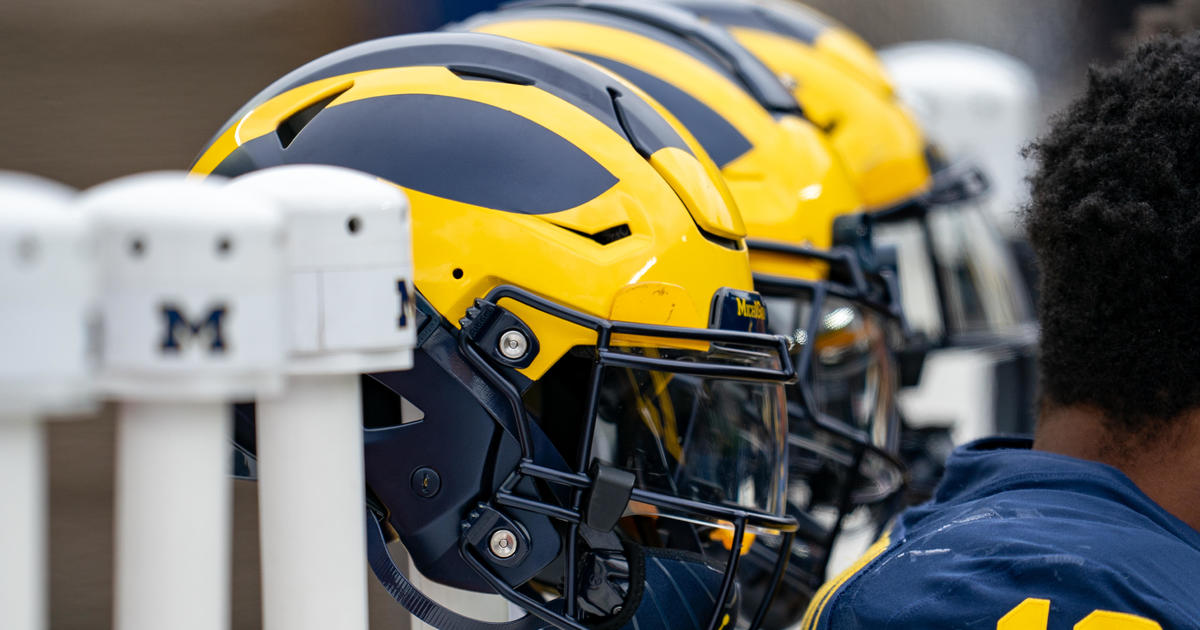A look inside University of Michigan's automated vehicle testing facility
ANN ARBOR, Mich. (CBS DETROIT) - Hidden from sight on the University of Michigan's North Campus is Mcity, an autonomous vehicle and technology testing site utilized by academics, startups, and major automakers.
Mcity's managing director, Greg McGuire, explained that the facility has an entire augmented reality world running around the clock.
"You can't see it, but right now, there is what we call a 'digital twin' of Mcity that's running in our computing center that's producing all kinds of realistic background – drivers, vehicles, pedestrians, bicyclists, all driving around out here like it's a real city," said McGuire.
A public-private partnership, McGuire said Mcity aims to improve safety, efficiency, accessibility and equity in transportation.
It features intersections, stretches of highway, and a roundabout.
"Roundabouts are things we're now seeing all over Michigan," said McGuire. "They're difficult for humans to adapt to as well as machines. It's one of the roadway features that we wanted to have in here. The idea, though of Mcity's test facility is that it represents the real world as much as possible.
"So, what makes it different from proving grounds out there where we're testing the bones and muscles of cars, of transportation systems, you know, the wheels, the powertrain, all that kind of thing, here, we're trying to test the brains."
PhD candidate Maddie Quirk is researching how humans accept driverless vehicle technology.
"The psychology of autonomous vehicles is actually one of the most important factors," said Quirk. "If we don't understand how people might actually feel towards the vehicles or be willing to use the vehicles, then there's no point in actually creating the products of autonomous vehicles or trying to implement them in the community if people don't really trust the actual vehicles themselves."
The technology for the country's first wireless charging roadway in Detroit was tested at Mcity.
The facility opened in 2015 with the help of the Michigan Department of Transportation, which donated highway gantries, signs and other materials.
From afar, Mcity's downtown area looks like a real city. But up close, it's a 2D façade.
It features the storefronts of businesses in Ann Arbor, complete with outdoor seating.
Throughout the facility, Mcity has curbing, sidewalks, drainage systems and electrical power, just like any other city.
McGuire said for researchers, the more realistic the environment is, the better.
Part of our visit included taking a ride in a testing vehicle on a pre-programmed loop in Mcity's computer-generated reality.
In less than a minute, we encountered virtual pedestrians and even crashed into other virtual vehicles.
It's jarring to be in a car that's driving itself.
Even more so is how quickly you become accustomed to – and even accept – the idea.
When asked why the research is important, McGuire said it has extensive real-life implications.
"It's important that the public have a way to trust any individual company's self-driving system, is capable of being out there in public with us, because we're going to have a long period – decades, I'd say – where humans and robots are sharing in the driving task," he said.
"And we need to know that these systems are safe and are going to behave reliably and predictably if they're going to be out there with us, with my children, with yours, with all of us."




